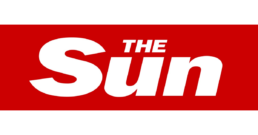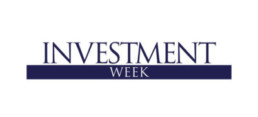Finding the right balance
How does the number of holdings affect costs, volatility and performance. The NMA gets the measure of six balanced portfolios including Beaufort Investment's Active 05 S3 Portfolio.
The World In A Week - Biden’s Decisive Decade
It was a volatile week for equities, but one which pretty much came out flat for the overall MSCI Global Equity Index, though the UK equity market, FTSE All Share, pulled back -0.98%. On Friday US markets bounced back, after sliding on Thursday, on a report that Biden was looking to raise Capital Gains Tax. Stocks whipsawed this week with rising coronavirus cases, mixed economic data and corporate earnings.
The week ended with US President Joe Biden’s climate change summit. The event, meant to demonstrate America’s return to the stage as a climate leader, garnered only modest pledges from attendees despite Biden’s promise of a monumental 50% cut in US emissions, declaring “this is the decisive decade” for tackling climate change. The important point appears to be everyone pulling together. Biden’s administration is focused on commitments from banks and private businesses to help fight the accelerating climate crisis. Four of the biggest US banks on Wall Street – Morgan Stanley, Bank of America, JP Morgan & Citigroup, have pledged $6 trillion in sustainable finance. The billions of dollars they will save in taxes is probably one of the reasons for such grand generosity.
In the developed world the infection rate from the pandemic continues to fall steadily, as the vaccine continues to be rolled out. Johnson & Johnson’s vaccine was finally put back into action in the US. However, in India, the pandemic continues to spiral out of control. On Friday, the nation reported 332,730 new infections, yet another global record. Hospitals are overwhelmed and turning patients away, with the country turning to mass cremations for the thousands dying each day. Incredibly tragic news and one that says we are not out of the woods yet.
Last week also proved a volatile week for Bitcoin, its worst week in months. The notoriously volatile cryptocurrency hit a high of $64,870 on 14th April, but a fresh bout of selling on Friday drove it down nearly -8% to $47,525. It keeps getting worse for the $35 billion Grayscale Bitcoin Trust, which is trading at a significant discount to the value of the underlying digital assets it owns. It has lost nearly a fifth of Its value since last Friday, and Wall Street analysts are warning of further pain to follow. An area of the market with lots of focus and hype, but an area we have left well alone.
Any opinions stated are honestly held but are not guaranteed and should not be relied upon.
The information contained in this document is not to be regarded as an offer to buy or sell, or the solicitation of any offer to buy or sell, any investments or products.
The content of this document is for information only. It is advisable that you discuss your personal financial circumstances with a financial adviser before undertaking any investments.
All the data contained in the communication is believed to be reliable but may be inaccurate or incomplete. Unless otherwise specified all information is produced as of 26th April 2021.
© 2021 Beaufort Investment. All rights reserved.
“For the moment, inflation looks contained”: UK CPI rises by 0.7%
Transport and clothing lead the rise in CPI inflation as the UK started to open up post-lockdown.
Unemployment hits 813,000 Brits since start of pandemic with 56,000 losing jobs last month
It means the total number of workers who don't have a job now stands at 1.67million, reports the Office for National Statistics (ONS).
The World In A Week - The Beer Garden Boom
Global markets continued chugging along last week, with the MSCI All Country Index of global stocks returning +0.8% in GBP. A notable leader was the UK Equity market, which returned +1.5% as measured by the FTSE All Share Index. We continue to believe that the UK market could have significant room to run, having been neglected by global investors for many years. The re-opening of the UK economy continues apace, as borne out in Google’s mobility data. The less scientific measure of how difficult it is to book a pub garden right now, also supports this hypothesis.
Another interesting dataset we have observed is the excess savings accumulated by households during the pandemic. UK households are second only to the US in foregone consumption, at an estimated 10% of GDP. This compares to 6% for the world as a whole, 6.2% in Germany and 5.5% in France. As these savings are spent in the coming months, we expect this to give significant support to domestically-focused UK stocks. This also supports our view that Sterling Fixed Income remains unattractive, as a revival in economic growth is likely to lead to higher interest rates which are a negative for bonds.
Other global markets are a very mixed bag in terms of how attractive or unattractive they are to us right now. We have written many times in the past that elements of the US Equity market exhibit stretched valuations and heroic growth assumptions, although we have recently been adding small-cap value exposure which should benefit from the strong rebound in the world’s largest economy. Certain Fixed Income markets are also once again looking as if they are “priced for perfection” with the extra compensation paid to investors for holding investment grade and high yield corporate debt now roughly back to all-time lows. We think selectivity and remaining active in Fixed Income markets will be critical to client outcomes from this point.
Any opinions stated are honestly held but are not guaranteed and should not be relied upon.
The information contained in this document is not to be regarded as an offer to buy or sell, or the solicitation of any offer to buy or sell, any investments or products.
The content of this document is for information only. It is advisable that you discuss your personal financial circumstances with a financial adviser before undertaking any investments.
All the data contained in the communication is believed to be reliable but may be inaccurate or incomplete. Unless otherwise specified all information is produced as of Monday, 19th April 2021.
© 2021 Beaufort Investment. All rights reserved.
Investing in future winners
Equity markets have rebounded strongly from the falls of February and March 2020, to deliver significant outperformance to investors. Our CIO, Shane Balkham was quoted in this article.
The World In A Week - Roaring Twenties 2.0
Last week saw Boris Johnson confirm that England would proceed to the second phase of the lifting of lockdown restrictions on 12th April, as non-essential shops, beer gardens, hairdressers and gyms would be allowed to re-open their doors. There is a general expectation that consumer spending will pick up sharply as British people have been starved of access to shops, leisure activities and pubs. According to the Office for Budget Responsibility, estimates suggest that an extra £180bn of savings will have been generated during the lockdown by June 2021. There have been significant worries that inflation will begin to pick up as consumer spending frantically increases and this could be the start of a remarkable period of consumption, which could resemble something similar to the “Roaring Twenties” frenzy. This period, starting in the 1920’s, saw accelerated consumer demand in leisure and cultural activities following years of hardship and loss from World War 1.
We are in a similar situation today, having faced travel restrictions and adhering to social distancing protocols to suppress the spread of the COVID-19 virus. There are clearly some distinct similarities between the “Roaring Twenties” and current day circumstances with significant pent-up demand expected in the travel and leisure industries. Tourism and luxury fashion are two industries that are expected to thrive as lockdowns begin to ease and vaccine rollout increases.
Looking ahead to the rest of the week, today is the start of the US corporate earnings season with the S&P 500 hitting fresh highs on Friday as markets prepare for the release of company Q1 financial results. The S&P 500 closed +3.4% last week, outperforming the global equity benchmark MSCI World Index which was up +3.1%.
Any opinions stated are honestly held but are not guaranteed and should not be relied upon.
The information contained in this document is not to be regarded as an offer to buy or sell, or the solicitation of any offer to buy or sell, any investments or products.
The content of this document is for information only. It is advisable that you discuss your personal financial circumstances with a financial adviser before undertaking any investments.
All the data contained in the communication is believed to be reliable but may be inaccurate or incomplete. Unless otherwise specified all information is produced as of Monday, 12th April 2021.
© 2021 Beaufort Investment. All rights reserved.
Brexit is yesterday's news: UK equities are the talk of the town with plenty of value and opportunity
Now that Brexit is firmly yesterday's news, and within the UK we have made great strides in terms of the vaccine rollout to tackle the pandemic, UK equities now look to present a very different proposition. Our fund manager, Richard Warne takes a deep dive into UK Equities.
The World In A Week - Knitting Pattern
Data is confirming the pattern of the economic bounce back. As restrictions are eased, spending on services are increasing. Restaurants, leisure, and hospitality are the main beneficiaries, as consumers look to make up for lost time. This can be seen in the US payroll data that was published on Good Friday, where 916,000 jobs were added in March. The sector with the largest increase was leisure and hospitality. This is exactly what we would expect as the lockdown restrictions are lifted.
This joy is being delayed in Europe though, as the number of COVID-19 cases continue to rise, and additional restrictions are implemented. France announced a four-week lockdown and Italy is extending their current restrictions to the end of April. German Chancellor Merkel has also warned that further restrictions may be required in Germany. A sombre week when compared to the UK, where we enjoyed an Easter weekend with lesser restrictions.
However, the consequence of these lockdowns in Europe may mean a delay to easing restrictions for the UK population to holiday abroad. While this will be disappointing to many of us, it arguably matters more for Europe. Tourism is a significant part of the European economy, and while certain elements of demand are only delayed because of lengthened restrictions, holidays are time sensitive, and the summer could be lost if control is not established quickly.
While data is looking positive, policymakers are yet to take their foot off the gas. President Biden unveiled his once-in-a-generation infrastructure investment plan for the US, which will see almost $2 trillion pledged to rebuild roads, highways, and bridges. This is not a patch though, as the proposal, called the ‘American Jobs Plan’, is being used to confront climate crisis, curtail wealth inequality, and strengthen competitiveness.
The proposal will take eight years and generate millions of jobs, with an increase in corporate taxes over the next 15 years to help offset the cost. In reality, much of the tax increase is simply unwinding the tax cuts that President Trump introduced during his term in office. One thing is for sure, this will take considerable time to be signed off by Congress as everyone looks to amend the plan to benefit their own constituencies.
As we start the second quarter of 2021, there are a lot of factors to be weaved together before we can finally reach the light at the end of the tunnel, but the progress is encouraging.








The World In A Week - High and Dry?
It was a busy week that saw the US Federal Reserve meet to discuss monetary policy. The expectation was for a steady hand on the tiller, and they did not disappoint. Monetary policy is to remain static, with interest rates at historically low levels and the quantitative easing programme at historically high levels.
It was stressed by Chair Jerome Powell that this was not the time to be talking about scaling back bond buying. However, there was an upgrade to the outlook for the US economy. Continued progress on vaccinations, improving indicators of economic activity, and a strengthening in employment, all led the Federal Reserve to update their rhetoric. Single words matter and in March they expressed pandemic risks as “considerable”, and this word was removed in their recent commentary.
To underline the outlook for the US, the country’s official economic data was released showing an annualised growth rate of 6.4% for the first three months of 2021. Growth data typically takes a month to be collated and calculated, so it is always busy the month after the end of the quarter. The continuing level of stimulus and easing of lockdown restrictions have given a boost to the recovery. Despite the speedy upturn, President Joe Biden continues to put pressure on Congress to approve his expanding agenda.
Having now passed 100 days as President, the volume of stimulus that he wants to approve continues to rise. In March, the $1.9 trillion American Rescue Act was passed, now we have the $2.3 trillion American Jobs Plan, which has been designed to upgrade the US’s failing infrastructure, and the $1.8 trillion American Families Plan, which looks to improve workers’ benefits.
The obvious risk, with such stimulative monetary and fiscal policies in place, is that the US economy could overheat. This does increase the likelihood of a spike to inflation levels, albeit short-lived, and would demand an appropriate policy response. This is something we are keeping a close eye on.
On the other side of the Atlantic, the Eurozone slid into a double-dip recession. The output in the first three months of 2021 dropped, as the weight of continued lockdown measures and a stuttering vaccine programme left them lagging behind other developed economies. The -0.6% fall for the first quarter followed a -0.7% drop for the last quarter of 2020 creating a technical recession for the Eurozone. This backdrop demonstrates why we are currently underweight in European equities.
In the UK, consumers are embracing the reduced lockdown measures, particularly at pubs, which has seen craft and premium beers being added to the growing list of items that are hitting supply constraints. Do not underestimate the power of pent-up demand, supported by substantial savings, that we have witnessed during this lockdown.
Any opinions stated are honestly held but are not guaranteed and should not be relied upon.
The information contained in this document is not to be regarded as an offer to buy or sell, or the solicitation of any offer to buy or sell, any investments or products.
The content of this document is for information only. It is advisable that you discuss your personal financial circumstances with a financial adviser before undertaking any investments.
All the data contained in the communication is believed to be reliable but may be inaccurate or incomplete. Unless otherwise specified all information is produced as of 4th May 2021.
© 2021 Beaufort Investment. All rights reserved.